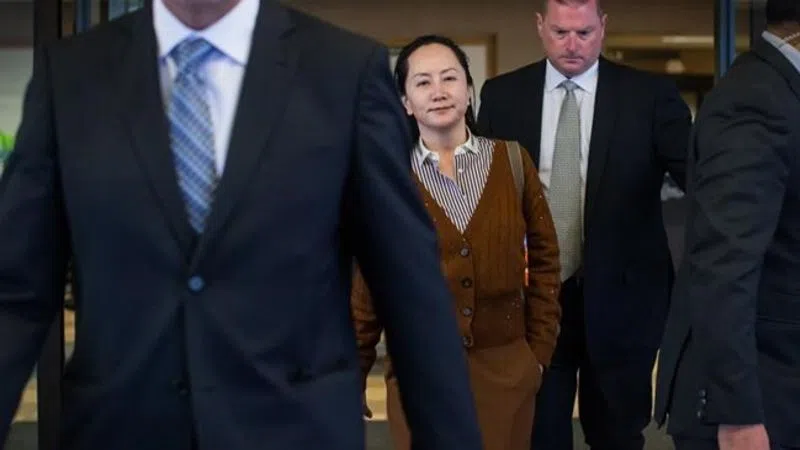
Meng Wanzhou wins right to more documents involving arrest at Vancouver airport
VANCOUVER — Huawei executive Meng Wanzhou has won an application for more documents to be disclosed as she alleges she faced an abuse of process during her arrest at Vancouver’s airport last year.
Justice Heather Holmes of the British Columbia Supreme Court says Meng has met the test for further disclosure but her ruling doesn’t predict or imply that the claim of an abuse of process will succeed in the extradition case.
“The test screens out applications to support abuse of process claims with no established air of reality to them, but it is not a demanding one,” Holmes wrote in the decision published online Tuesday.
Meng was detained on Dec. 1, 2018, for three hours by border guards who seized her electronic devices and passcodes before handing them to the RCMP when the police force executed a provisional arrest warrant.


